|
 Secure Site
Secure Site
|
 |
Archive for the 'Japanese Inspired Zen Clocks' Category
 calm the mind, zen timers by Now & Zen, Boulder, CO In Medtitation everyone most likely experiences two of the five hindrances. They are boredom, which is half-hearted action with little or no collectedness and restlessness-worry, which is the inability to calm the mind.
The first three enlightment factors (mindfulness, investigation, energy) are to be used when experiencing boredom to regain collection, the last three enlightment factors (tranquillity, collection, equanimity) are to be used when experiencing restlessness and worry to regain collectedness.
adapted from wikipedia.org
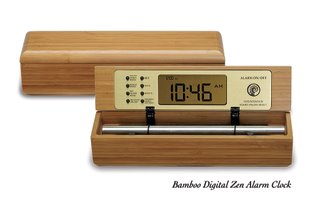 Bamboo Zen Timers, a meditation tool Now & Zen
1638 Pearl Street
Boulder, CO 80302
(800) 779-6383
Posted in Bamboo Chime Clocks, Chime Alarm Clocks, Japanese Inspired Zen Clocks, Meditation Timers, Meditation Tools, mindfulness practice, Natural Awakening, Now & Zen Alarm Clocks, Yoga Timer, Yoga Timers by Now & Zen
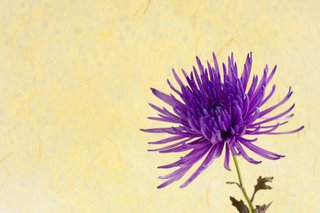 chrysanthemum Yellow or white dried chrysanthemum flowers are boiled to make a sweet drink in some parts of Asia. The resulting beverage is known simply as “chrysanthemum tea”.
Chrysanthemum tea has many medicinal uses, including an aid in recovery from influenza.
adapted from wikipedia.org
 Bamboo Zen Timers Now & Zen
1638 Pearl St.
Boulder, CO 80302
Posted in Chime Alarm Clocks, Japanese Inspired Zen Clocks, Zen Timepiece by Now & Zen
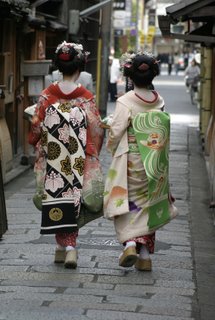 chrysanthemums on obi
Chrysanthemums, often called mums or chrysanths, are a genus (Chrysanthemum) of about 30 species of perennial flowering plants in the family Asteraceae, native to Asia and northeastern Europe.
The flower was introduced into Japan probably in the 8th century AD, and the Emperor adopted the flower as his official seal. There is a “Festival of Happiness” in Japan that celebrates the flower.
adapted from wikipedia.org
 Chrysanthemum Crest - The gate of Yasukuni shrine
Now & Zen
1638 Pearl St.
Boulder, CO 80302
Posted in Japanese Inspired Zen Clocks, mindfulness practice, Now & Zen Alarm Clocks
 stillness Water gardens, also known as aquatic gardens, backyard ponds and garden ponds, usually referring to a man-made feature, typically combine a pool with aquatic plants and often ornamental fish. Fixed items such as rocks, fountains, statuary, waterfalls and watercourses can be combined with the pool to add visual interest and integration with the local landscape and environment.
Water gardens are a perfect place for a mindfulness practice.
adapted from wikipedia.org
 Bamboo Zen Chime Clock
Now & Zen
1638 Pearl St.
Boulder, CO 80302
Posted in Chime Alarm Clocks, Japanese Inspired Zen Clocks, Meditation Timers, Meditation Tools, Progressive Awakening, Well-being, Zen Timers
 Maneki Neko on Peter's kimono at Ten Thousand Waves Spa, Santa Fe, NM The Maneki Neko (“Beckoning Cat”; also known as Welcoming Cat, Lucky Cat, Money Cat, or Fortune Cat) is a common Japanese sculpture, often made of ceramic, which is believed to bring good luck to the owner. The sculpture depicts a cat (traditionally a Japanese Bobtail) beckoning with an upright paw, and is usually displayed—many times at the entrance—in shops, restaurants, and other businesses. Some of the sculptures are electric or battery-powered and have a slow-moving paw beckoning. I n the design of the sculptures, a raised right paw supposedly attracts money, while a raised left paw attracts customers.
To Westerners it may seem as if the Maneki Neko is waving rather than beckoning. This is due to the difference in gestures and body language recognized by Westerners and the Japanese, with Japanese beckoning by holding up the hand, palm out, and repeatedly folding the fingers down and back up, thus the cat’s appearance.
While it is believed that Maneki Neko first appeared during the later part of the Edo period (1603-1867) in Japan the earliest documentary evidence comes from the 1870s, during Japan’s Meiji Era. It is mentioned in a newspaper article in 1876 and there is evidence kimono-clad Maneki Neko were distributed at a shrine in Osaka during this time.
 Black Lacquer Zen Alarm Clock adapted from wikipedia.org
Now & Zen
1638 Pearl Street
Boulder, CO 80302
Posted in Chime Alarm Clocks, Japanese Inspired Zen Clocks, Now & Zen Alarm Clocks, Progressive Awakening, Zen Timers
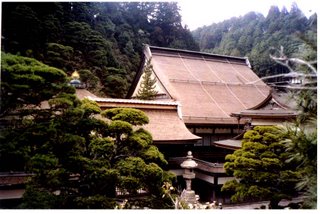 Koya-san, Japan Mount Kōya (Kōya-san) is the name of mountains in Wakayama prefecture to the south of Osaka. There is no one mountain officially called Kōya-san in Japan.
First settled in 819 by the monk Kukai, Mt. Koya is primarily known as the world headquarters of the Koyasan Shingon sect of Japanese Buddhism. Located in an 800 m high valley amid the eight peaks of the mountain (which was the reason this location was selected, in that the terrain is supposed to resemble a lotus plant), the original monastery has grown into the town of Koya, featuring a university dedicated to religious studies and 120 temples, many of which offer lodging to pilgrims.
adapted from wikipedia.org
 Digital Zen Alarm Clock Now & Zen
1638 Pearl St.
Boulder, CO
Posted in Chime Alarm Clocks, Japanese Inspired Zen Clocks, Meditation Timers, Meditation Tools, Now & Zen Alarm Clocks, Zen Gardens, zen monks, Zen Timers
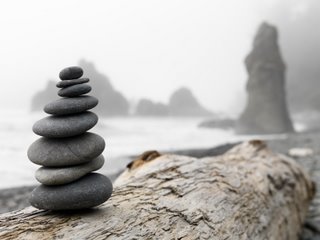 Dialectical Idealism- stillness Upaya is a term in Mahayana Buddhism which refers to something which goes or brings you up to something (i.e., a goal). It is essentially the Buddhist term for dialectics.
Dialectical Idealism adapted from Wikipedia.org
 Meditation Clock Timer- Bamboo Zen Clock and Timers
Now & Zen
1638 Pearl Street
Boulder, CO 80302
Posted in Japanese Inspired Zen Clocks, Well-being, Zen Timers
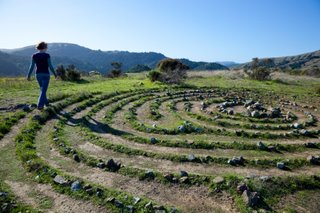 labyrinth, walking meditation Meditation can be practiced while walking or doing simple repetitive tasks. Walking meditation helps break down habitual automatic mental categories, thus regaining the primary nature of perceptions and events, focusing attention on the process while disregarding its purpose or final outcome.
adapted from wikipedia.org
 Zen Clocks by Now & Zen, Boulder, CO
Now & Zen
1638 Pearl St.
Boulder, CO 80302
Posted in Japanese Inspired Zen Clocks, Meditation Timers, Meditation Tools, mindfulness practice
a haiku master, Matsuo Basho from Japan
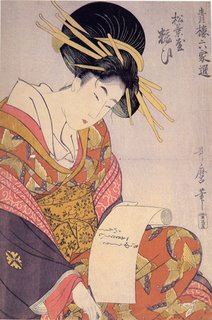 Haiku Ukiyo-e by Kitagawa Utamaro, woodblock print Matsuo Bashō (1644 – 1694) was the most famous poet of the Edo period in Japan. During his lifetime, Bashō was recognized for his works in the collaborative haiku no regata form; today, after centuries of commentary, he is recognized as a master of brief and clear haiku.
Despite his success, Bashō grew dissatisfied and lonely. He began to practice Zen meditation.
“Spring morning marvel
lovely nameless little hill
on a sea of mist”
–haiku by Basho translated by Peter Beilenson
 - Zen Alarm Clock in Maple Finish, Japanese Leaves Dial Face
wikipedia.org
Now & Zen
1638 Pearl St.
Boulder, CO 80302
Posted in Cherry Blossoms, Chime Alarm Clocks, Japanese Inspired Zen Clocks, Japanese Poetry, Meditation Tools, Natural Awakening, Now & Zen Alarm Clocks, Progressive Awakening, Zen Timers
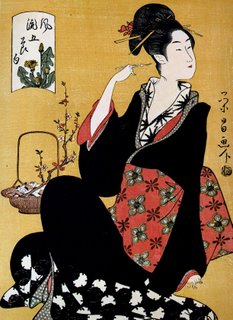 Cherry Blossom Festival, Chokosai Eisho - Now & Zen Inc. Hanami was first used as a term analogous to cherry blossom viewing in the Heian era novel Tale of Genji.
Emperor of the Heian Period adopted the practice of holding flower-viewing parties with sake and feasts underneath the blossoming boughs of sakura trees in the Imperial Court in Kyoto. Poems would be written praising the delicate flowers, which were seen as a metaphor for life itself, luminous and beautiful yet fleeting and ephemeral.
This was said to be the origin of hanami in Japan.
wikipedia.org
 - Zen Chime Clocks
Now & Zen
1638 Pearl St.
Boulder, CO 80302
Posted in Japanese Inspired Zen Clocks
« Previous Page — « Previous Entries
Next Entries » — Next Page »
|
|
|
|